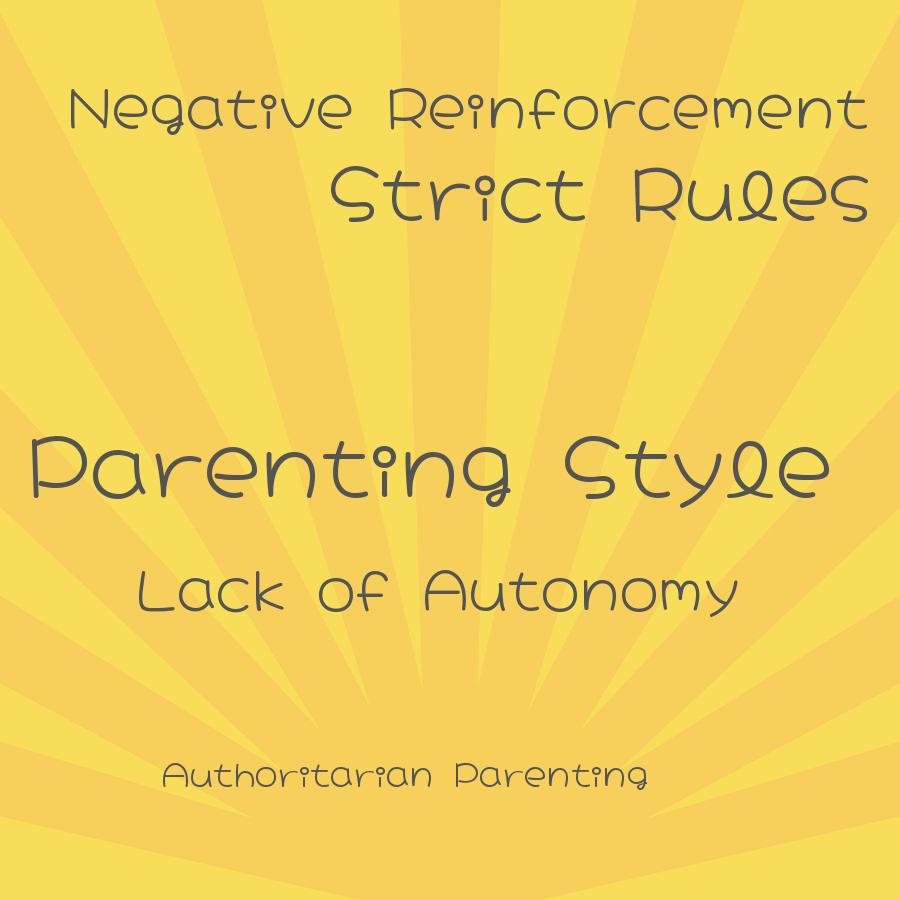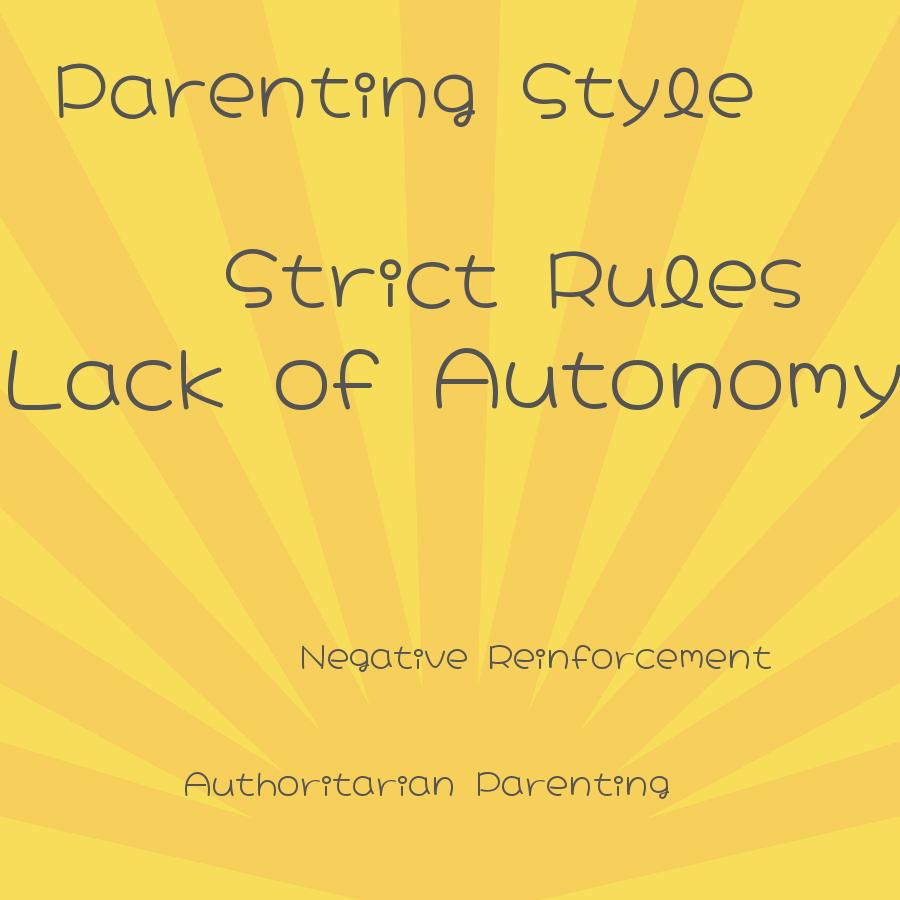Authoritative parenting style can lead to bossy and noncompliant behavior in children.
As a child, I remember being scolded by my mother for not following her instructions. “Do as I say, not as you want” was her favorite phrase.
Being the obedient child that I was, I would always comply with her demands without questioning them. But as I grew older and became a parent myself, I realized that there are different approaches to parenting that can lead to vastly different outcomes.
One of the most common parenting styles is authoritarian parenting – where parents demand obedience from their children without any explanation or justification. As a blogger and a concerned parent, it got me thinking: does this approach lead to bossy and noncompliant behavior in children? To find out, let’s delve deeper into this topic and explore the different parenting styles that exist today.
Here You Will Learn:
Authoritarian Parenting


Authoritarian parenting is a style where parents expect their children to follow strict rules and regulations without any explanation or justification. They believe that obedience is the key to good behavior, and they enforce it through punishment and discipline.
As a child, I was raised in an authoritarian household where my mother’s word was law. While this approach may seem effective in controlling children’s behavior, research suggests that it can lead to negative outcomes.
Studies have shown that children raised under authoritarian parenting tend to be more anxious, withdrawn, and less self-assured than those who are not subjected to such strict control measures. Moreover, these kids often lack problem-solving skills as they are not encouraged by their parents’ decision-making process.
As a parent myself now with two young kids of my own – I’ve come across many other styles of parenting which could potentially lead towards bossy or noncompliant behaviour in our little ones if we’re not careful enough!
Lack of Autonomy
One of the key factors that can lead to bossy and noncompliant behavior in children is a lack of autonomy. When parents adopt an authoritarian parenting style, they tend to micromanage their child’s every move, leaving little room for independent decision-making.
This can make children feel powerless and frustrated, leading them to rebel against their parent’s authority.
As I reflect on my own childhood experiences with my mother’s strict parenting style, I realize that it left me feeling suffocated and resentful at times. While her intentions were undoubtedly good – she wanted me to grow up as a disciplined individual – her approach often made me feel like I had no say in matters concerning myself.
Research has shown that when children are given more autonomy over their lives from an early age, they develop better decision-making skills and become more self-reliant individuals later on in life. On the other hand, when parents exert too much control over their child’s actions without giving them any freedom or choice whatsoever; it can lead to negative outcomes such as low self-esteem or even depression.
While there is no one-size-fits-all solution when it comes to parenting styles; adopting an authoritative approach where you give your child some degree of independence while still maintaining clear boundaries could be beneficial for both you and your child in the long run.
Strict Rules and Punishments
Strict rules and punishments are often associated with authoritarian parenting. Parents who adopt this style believe that children should follow their instructions without question, and any deviation from the set rules is met with punishment.
While this approach may seem effective in the short term, it can lead to negative consequences in the long run.
As a child, I remember feeling like my opinions didn’t matter when my mother would scold me for not following her strict rules. This made me feel powerless and resentful towards her at times.
Similarly, children who grow up under authoritarian parents may develop bossy behavior as they try to exert control over others since they have been conditioned to obey without questioning.
Moreover, strict punishments such as spanking or verbal abuse can cause fear and anxiety in children instead of teaching them right from wrong. Children raised under these conditions tend to become noncompliant because they don’t understand why certain behaviors are unacceptable; all they know is that if caught doing something “wrong,” there will be severe consequences.
While setting boundaries for your child’s behavior is essential for their development into responsible adults; enforcing those boundaries through fear-based tactics isn’t always effective nor healthy for your relationship with them or their future relationships outside of home life either!
Negative Reinforcement
Negative reinforcement is a parenting style that relies on punishment to correct behavior. Parents who use this approach often resort to yelling, spanking, or taking away privileges when their child misbehaves.
While it may seem like an effective way of disciplining children, negative reinforcement can have long-term consequences.
As I reflect on my childhood and the authoritarian parenting style that my mother employed, I realize now how much negative reinforcement played a role in shaping my behavior. Instead of understanding why certain behaviors were wrong or harmful, I was simply told what not to do and punished if I disobeyed.
This type of parenting can lead to bossy and noncompliant behavior in children because they are not given the opportunity to learn from their mistakes or understand why certain actions are unacceptable. They may become resentful towards authority figures and rebel against rules without any regard for consequences.
It’s important for parents to remember that discipline should be about teaching rather than punishing. By using positive reinforcement techniques such as praise and rewards for good behavior instead of focusing solely on punishment for bad behavior, parents can help shape their child’s character positively while avoiding bossy attitudes later down the line.
Overbearing Control
Overbearing Control is a parenting style that involves strict rules and regulations, with little to no room for negotiation or compromise. Parents who adopt this approach believe that their children should follow their instructions without question, and any deviation from the set norms is met with punishment.
Growing up under an overbearing control parent can be challenging for children. They may feel suffocated by the constant monitoring of their actions and have limited opportunities to express themselves freely.
As a result, they may become resentful towards authority figures in general or develop bossy behavior as a way of exerting control over others.
As parents, it’s essential to understand that while discipline is necessary for raising well-behaved children; too much rigidity can lead to negative outcomes such as noncompliant behavior in kids. Instead of imposing our will on our kids all the time, we need to give them some autonomy so they can learn how to make decisions independently while still respecting boundaries set by us.
Overbearing Control parenting style might seem like an effective way of getting your child’s compliance at first glance but could ultimately lead them down a path where they are unable or unwillingly comply with anyone else’s demands other than theirs due mainly because it stifles creativity and individuality among young ones.